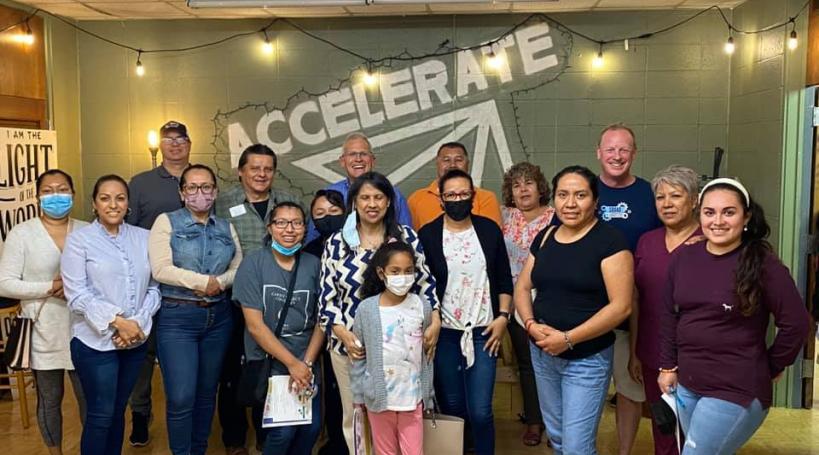Kids who are able to access healthy meals learn more efficiently, studies show. And, statistically, communities of color and economically marginalized communities experience food insecurity at a disproportionate rate. We are highlighting equity practices and policies from school districts across our nation that are making efforts to eliminate disparities. By highlighting these districts and communities, we hope to provide a roadmap for those who are just getting started and those who wish to do more. One such example is in Greenville County, South Carolina.
LiveWell Greeneille is an impact coalition that works with a network of organizations, such as food agencies, faith communities, early childhood centers, and schools, to ensure access to healthy eating and active living for every Greenville County resident such as communities of color and economically marginalized communities. Located in upstate South Carolina, LiveWell Greenville is within the Greenville County School (GCS) system and serves the largest population of students in the state. To that end, LiveWell has recognized that community-driven initiatives are needed to support students experiencing food insecurity and to “impact policies, systems, and environmental changes.” LiveWell Greenville’s Susan Frantz, Partnership Coordinator, shared how they are working to “foster creative solutions to ensure equitable access to nutritious and culturally appropriate food, as well as to advocate for a community-driven food system that improves quality of life.”
Over the past year, LiveWell’s Food Security Coalition produced the 2020 Greenville County Food Systems Assessment, which was completed to help inform the community’s plan for addressing food access and security.
LiveWell discovered disparities in school backpack programs in the Hispanic/Latinx community in the White Horse Road Corridor (WHRC). Based on the assessment’s findings, LiveWell prioritized the WHRC area, home to Berea Elementary School, to make sure resources were distributed equitably and to implement a weekend backpack program. Collaboration was pivotal to addressing inequitable distribution and creating long-term relationships.
A No Kid Hungry grant created the opportunity to purchase food, and local partners purchased backpacks and packed them for distribution. Through the extensive faith community, LiveWell has forged relationships with other area schools who could use community partner support in the long term. Relationships were also built with the families of the students at Berea Elementary School. For example, LiveWell created bilingual surveys for Berea Elementary School families to address resource inequities to continue its reach and offer direct support. Families were more open to sharing their barriers to accessing healthier food with a survey in their native language, and they also provided beneficial feedback and shared that schools should tailor the food boxes to include culturally reflective food to students and their families.
Simultaneously, LiveWell is working to bring together community partners to make policy changes to make food security a reality. The Greenville Food Security Coalition is building a Food Equity Action Board to develop action steps for improving equitable food access in Greenville County. This year-long advisory board will consist of community members who unite, share knowledge, and discuss lived experiences. The goal is to encourage the community to harness their collective power for policy change. Although the board is in the beginning stages, LiveWell strives to ensure that the processes will be equitable and valuable to the community.
“Relationships are built to lead to authentic community and support.” – Susan Frantz
LiveWell has been in Greenville for over ten years and has evolved organically as a collective to open doors and create community trust through the school community and a network of partners. The Build Trust, Build Health initiative, funded by the BUILD Health Challenge, is a joint partnership between the Hispanic Alliance and LiveWell Greenville, working to reduce the rates of obesity in the WHRC community. This partnership is focused on educating the community about the link between healthy eating and chronic disease. Build Trust, Build Health looks at the existing systems that reinforce exclusionary practices and is building an action plan that will consist of community-based participatory resource projects to learn more about underlying causes. One barrier that has emerged from focus groups and interviews is the need to expand linguistic offerings and increase the number of inclusive spaces. Build Trust, Build Health has begun creating bilingual signage, providing interpretation at meetings, and creating informal spaces for Hispanic/Latinx communities. The goal is to strive for language justice so multilingual speakers are valued, included, welcomed, and have access to what they want to lead healthy and active lives.



